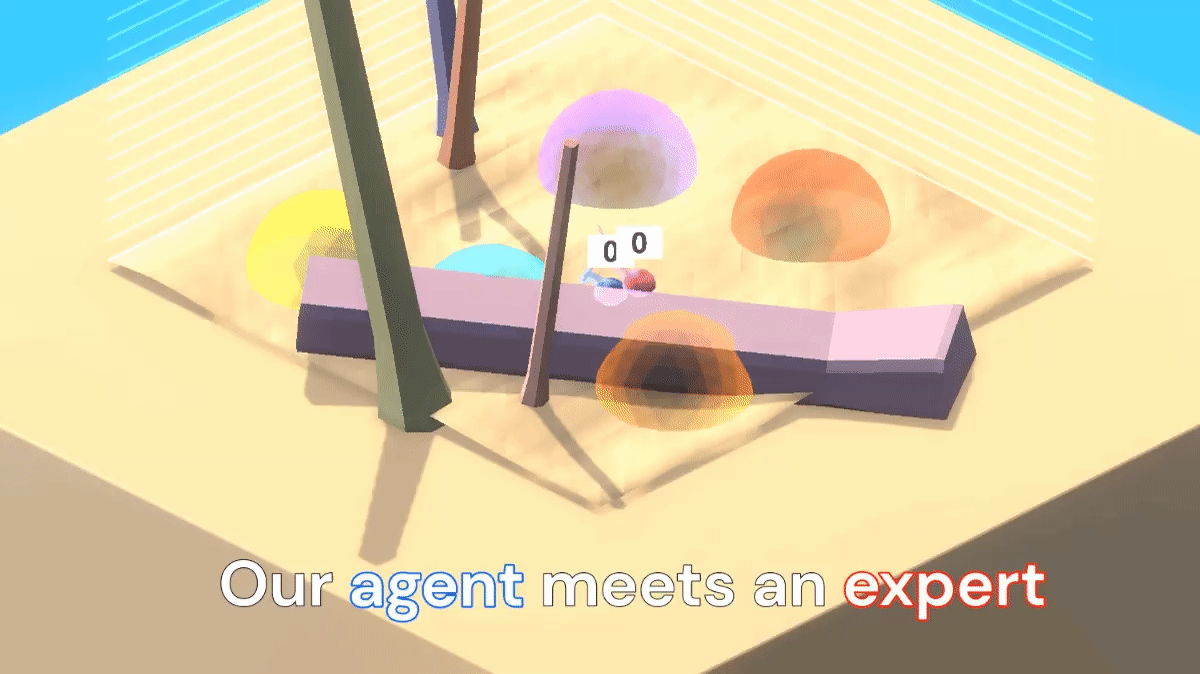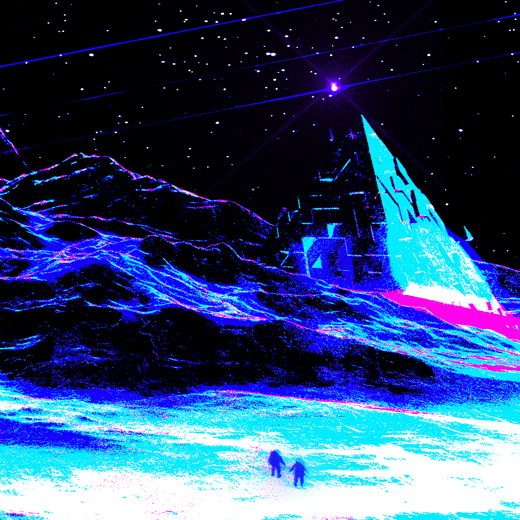New Week #73
Is Putin preparing to isolate Russia from the internet? Meet a new generation of hyper-realistic humanoid robots. Plus more news and analysis from this week.
Welcome to the mid-week update from New World Same Humans, a newsletter on trends, technology, and society by David Mattin.
If you’re reading this and haven’t yet subscribed, join 20,000+ curious souls on a journey to build a better future 🚀🔮
The last two weeks have been a cold blast of icy air. Via Russia’s invasion of Ukraine, the moment we’re living in feels yet more complex.
We’re all playing catch up. I hope this newsletter can evolve to meet the demands of the time. It will continue to ask: how did we get here? And what does all this mean for our shared future?
This week, news of the global info-war that is now raging, and that encompasses both nation states and Big Tech.
Also, Chinese technologists are working on humanoid robots that are deeply uncanny. And new research suggests that the Amazon rainforest may be about to turn into a savannah.
🌐 The truth war
The government of Ukraine wants ICANN to take measures that would cut Russia out of the global internet.
ICANN is the US-based nonprofit that administers the global system of domain names and IP addresses. Last week it received a letter from the Ukrainian representative on its Governmental Advisory Committee asking it to sever Russia from the world wide web, so that websites and email addresses no longer work.
So far ICANN has refused, saying the move would ‘set a dangerous precedent.’ Some analysts argue that ICANN couldn’t do what Ukraine has asked, even if it wanted to. And the Electronic Frontier Foundation says that ‘wartime is a bad time to mess with the internet.’
Meanwhile, documents published by the Kremlin this week led some to suggest that Russia is preparing to isolate itself from the internet; the documents appeared to order state-owned web services to switch to domestic DNS servers. These reports are contested; it’s been claimed by some analysts that the documents were mistranslated. Though Putin has form in this area; back in 2021 Russia tested a brief disconnection from the web as part of its ‘sovereign internet’ policy.
All the while, the war for truth continues. The citizen journalism emerging from Ukraine – including this viral TikTok account documenting life in Chernihiv – is tragic, raw, compelling. And our social media feeds have become dizzying conveyor belts that serve us an alternating diet of horror and inspirational resistance.
⚡ NWSH Take: It would take three newsletters to even begin an account of the info-war now raging between Russia and Ukraine and its allies. Russia has moved to block Facebook and restrict access to Twitter; its citizens are being cut out of the online conversation. Meanwhile, YouTube has banned all Russian state-owned media across Europe. In the age of online warfare, Big Tech has its own form of sovereignty. // The key lesson, though? The mechanics of digital info-war are poorly understood. Ukraine wants to shove Russian out of the internet to damage its propaganda machine. Meanwhile, Putin believes that digital isolation will strengthen his hand. Who is right? Most share the same instinct: keeping Russian citizens plugged in to the web will help Ukraine and its allies more than it will hurt. And access to the truth – especially the truth on what governments do in the name of their citizens – is a human right. // Underlying all this is a stark reality. The dream of a global, unified, and free internet is dead. As Great Power politics returns, we’ve entered the age of high-walled internet power blocks.
🤖 Uncanny and then some
Want a glimpse of our robot-fuelled future? A new museum exhibition in Dalian, China, can offer just that.
The EX Future and Science Museum is currently hosting next-generation robots intended to look near-identical to real humans, down to the tiny goosebumps on their medical-grade bionic silicone skin.
The exhibition also features a technology that will scan your face and body, and then 3D print a robot you. Which is, you know, fine.
⚡ NWSH Take: Back in November I wrote about Alphabet’s Everyday Robots Project, and its mission to put helper robots in our homes. I asked: what do we stand to lose if we embrace that future? Sure, the benefits are clear: robot, make me a coffee! Empty the dishwasher! But I can’t shake the feeling that our robot companions will construct for us strange new kinds of unfreedom, too. // In light of this exhibition, further questions arise. Are we heading towards a world in which we live among fully-realised, walking and talking objects that look just like real people? How, if at all, do we regulate that technology? And what will it do to the way we treat one another?
🌳 The death of trees
This week, a new study says the Amazon rainforest is close to a tipping point that will trigger a massive wave of tree dieback, and turn the forest into a savannah.
Published in the journal Nature Climate Change, the paper presents evidence to show that across the last three decades the rainforest has become dramatically less resilient to extreme events such as drought and wildfires. The research is based on an analysis of satellite images.
Pretty soon, says lead researcher Dr Chris Boulton, large parts of the forest may stop recovering from those kind of events, which are becoming more frequent. The consequences would be severe: a massive dump of carbon into the atmosphere that would escalate global mean temperatures.
⚡ NWSH Take: Read this research in conjunction with the new IPCC Assessment Report, which the UK Met Office called, ‘the bleakest assessment yet’. The report says many of the consequences of warming are now irreversible, and that the chance to keep warming to 1.5C is slipping away. // Rising numbers in the climate movement believe that the much-heralded 1.5C target is now impossible; in a recent survey of leading climate experts, most said we’ll end up at 3C. As I wrote about back in November, I’m increasingly convinced that closing our eyes and continuing to believe in a miracle is now harmful. Perhaps admitting a form of defeat could be the spur that leads us to a genuine mass movement, and meaningful action. Hope doesn’t seem to be working.
🧠 Machine culture
Alphabet’s AI division, DeepMind, has trained an AI that can learn in a way that emulates the cultural transmission of knowledge between humans.
The researchers created a 3D world full of obstacles that must be navigated in a certain order. They then trained an AI that was able to pay attention to an ‘expert bot’, which always navigated the obstacles in the correct order. The AI quickly learned from its expert teacher, and generalised learned behaviours to new environments.


Essentially, this is about making AIs that are able to learn from one another without much (or any) help from us.
That may sound a nerdish goal, but the implications are vast. This kind of cumulative knowledge transfer, underpinned by our memory and capacity for language, drove the the historical processes that took us from cave dwellers to moon visitors.
Where can cultural transmission of knowledge take AIs? Also worth thinking about: what will they do to us when they get there?
🗓️ Also this week
🐘 A genetic tech startup on a mission to resurrect the woolly mammoth has raised $60 million from investors, including Paris Hilton. Colossal was founded by Harvard scientist George Church, one of the creators of the Human Genome Project. It will use the money to plunge deeper into its research on gene editing.
💥 A ten-year-old online tool that simulates the effects of a nuclear strike is popular again. Nukemap allows users to see the blast radius and other effects of various nuclear weapons.
💡 Germany says it will spend €200 billion on an industrial transformation aimed at achieving ‘energy sovereignty’. Christian Lindner, the country’s finance minister, says Germany will invest more in hydrogen technology and its EV charging network.
🛩 The teenager who built a tool to track Elon Musk’s private jet is now targeting Russian oligarchs. A new Twitter account established to track their jets has already amassed 400,000 followers.
🧬 Researchers artificially extended the DNA alphabet to enable it to store more data. Scientists at the Beckman Institute for Advanced Science and Technology say their work could turn DNA into a powerful data storage platform. Just one gram of DNA can store several petabytes of data; that’s roughly the amount of information uploaded to the internet each day.
📖 The world’s largest online library fired 700 book reviewers and replaced them with AI (article in Dutch). NBD Biblion selects and distributes books to most of the public libraries in the Netherlands. Its reviewers categorised and wrote short descriptions of new books as they arrived. The organisation says human reviewers are no longer needed.
🏢 Media company VICE has launched an HQ in the metaverse. The new headquarters inside virtual world Decentraland were designed by Danish architecture studio BIG. VICE say it will serve as the company’s ‘virtual innovation lab’.
💸 The White House launched a plan to regulate cryptocurrencies. President Biden signed an executive order that called for a ‘comprehensive framework’ for regulation, and encouraged the Federal Reserve’s ongoing research into a US-backed cryptodollar.
🛰 A California startup wants to improve delivery times on important items by storing them in orbit ($). The founders of Inversion Space say the service could allow for hyper-fast delivery of life-saving organs. And, eventually, 45-minute delivery of a New York pizza to San Francisco. Twitter is sceptical.
🌍 Humans of Earth
Key metrics to help you keep track of Project Human.
🙋 Global population: 7,932,340,965
🌊 Earths currently needed: 1.8046507362
💉 Global population vaccinated: 56.2%
🗓️ 2022 progress bar: 19% complete
📖 On this day: On 9 March 1776 the Scottish economist Adam Smith publishes The Wealth of Nations.
Hold On Tight
Thanks for tuning in this week.
War in Ukraine and climate collapse: this instalment doesn’t make for light reading. But if we’re to catch a glimpse of our shared future, we have to stare unflinchingly at the now.
I want to write more about the overlapping nature of the crises we’re living through. And the idea that they’re all, in some deep sense, a single emerging megacrisis. It’s on the list for a future essay.
In the meantime, if this week’s instalment resonated with you there’s one thing you can do to help the NWSH community: share! Why not forward the email to someone who’d also enjoy it? Or share it across one of your social networks, with a note on why you found it valuable. Remember: the larger and more diverse the NWSH community becomes, the better for all of us.
I’ll be back this Sunday with the first of the new monthly essay series: The Worlds to Come. Until then, be well,
David.
P.S Huge thanks to Nikki Ritmeijer for the illustration at the top of this email. And to Monique van Dusseldorp for additional research and analysis.





